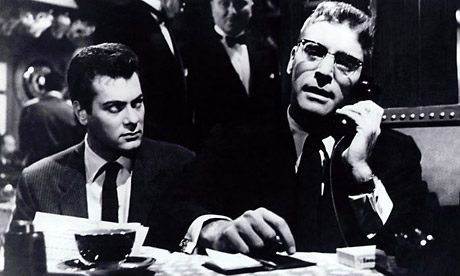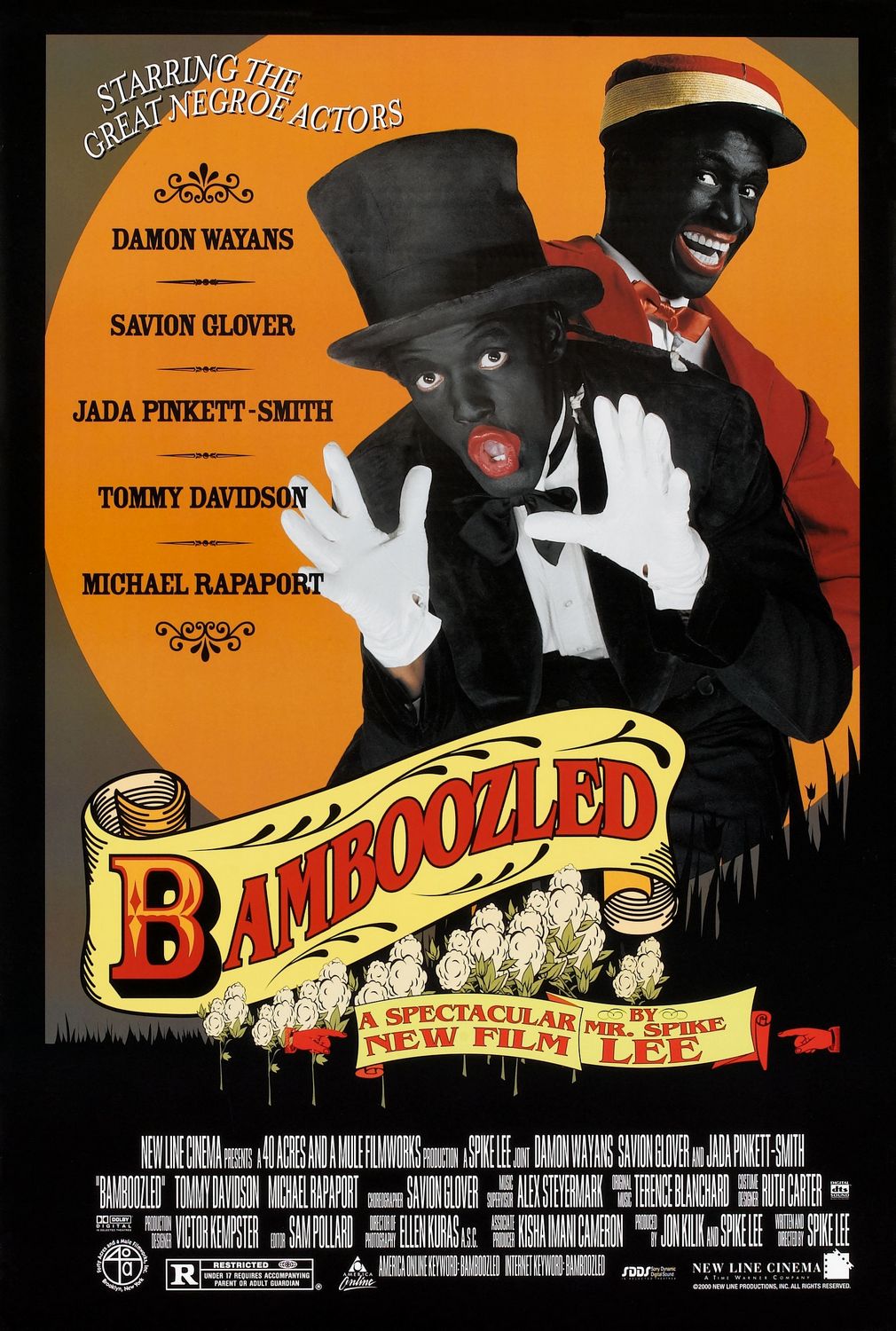So... I have felt for a long time now that the movie
Network perfectly captured, at a very early date, the political and financial pressures that drive modern media.

I wanted to put
Network into a larger film and historical context, and point out some of its inspirations, and some of the things it inspired.
Network can be seen as a foundation of media criticism, because it eschews the self aggrandizing narratives that usually go along with Hollywood movies covering journalists and the media. From
All the Presidents Men, to
Good Night And Good Luck, the roll of the reporter, or journalist is usually a heroic one, or at least is tangentially friendly to the idea that the 4th estate is in irreplaceable pillar of Democracy.
Network doesn't wear those tinted glasses, and that's one reason why it has withstood the test of time, and why TV shows and movies obviously inspired by it (
Newsroom, for example) don't quite ring as true.

After
Network, I want to jump to a classic, underrated movie that is usually considered in the context of Noir, or Jazz; that movie is
The Sweet Smell of Success. While the narrative focus is on that of the small time PR hack played by Tony Curtis, the driving engine of this movie is the indomitable character of J.J. Hunsecker... Played by Burt Lancaster, and based on real life columnist Walter Winchell. The technology may change, but the dynamic is the same. J.J. Hunsecker is a Mid-20th-Century Matt Drudge, power mad, and paranoid. Watch this movie with an eye on the relationship between the Media and the political machinery, and watch how personal drama's influence both.

Sweet Smell leads nicely into the thematic inspiration for Network... which is
A Face In the Crowd. This movie chronicles the rise from obscurity too fame, of a folksy country singer who ends up with his own national television show. While his public persona is that of all around nice guy, he is in fact an angry, mean drunk. One of the beautiful ironies of this movie is that the folksy, yet secretly angry-mean-drunk is played by Andy Richards, who turned in this performance
before he became the folksiest every-man of 20th century American television. This movie captures perfectly how the media manufactures fame, and eats up and chews out the people it uses, and also captures the strange relationship between fame, Media, and politics. If Hunsecker from
Sweet Smell... is Matt Drudge, then the Andy Richard's character in
A Face In The Crowd is Michael Savage.

From
A face in the Crowd, lets jump forward to Spike Lee's massively underrated classic
Bamboozled. Which is in direct dialog with
A Face In the Crowd, and
Network... but adds the complicated issue of the media's depiction of race into the mix. This movie is powerful, and filled with amazing performances. The depiction of race, and issues of complicity and collaboration with the media industrial complex's racism is at the heart of Bamboozled, and it can be painful to watch at times. But it should not be missed.
It was from the Spike Lee himself, in the film's directors commentary,
that I learned of the existence of the movie A Face In the Crowd, and how Lee was consciously making a film in this tradition. What went unsaid, however, was some of the other cultural references in Bamboozled. Lee didn't give away everything in the cliff notes, and one of the biggest mysteries for me in Bamboolzed was the origins of Pierre Delacroix's accent. In one memorable scene, the character's own father confronts him, saying
"N****r, where the fuck did you get that accent?"

For years, I never found an explanation for Pierre's accent. Spike Lee seems to never have commented on it publicly, and neither (from what
I've been able to find) has actor Damon Wayans who turned in an absolutely stunning performance. In 2013 (at the Noir City Film Festival), I discovered
the 1951 Argentinian adaption of Richard Wright's novel Native Son, starring non-other than Richard Wright himself. And it it, he has a unique, idiosyncratic, and vaguely European accent that is clearly the inspiration for Pierre Delacroix's accent. Mystery solved! Given this accent would have been completely out of place for the
character Wright was playing, I can only assume it was in fact his actual accent, and not an affectation for the film... though I
would love to find some recordings of the author to confirm this.

I am sure there some who probably took this Richard Wright allusion for granted, but I feel like its an obscure enough tidbit that it should be mentioned... and I've never seen it mentioned anywhere, in any conversations about Bamboozled, Damon Wayans, or Richard Wright.
Please let me know if there are any other films or TV shows that fit into this cycle of media and political criticism. As I alluded to above, I'm painfully familiar with Newsroom. :)





